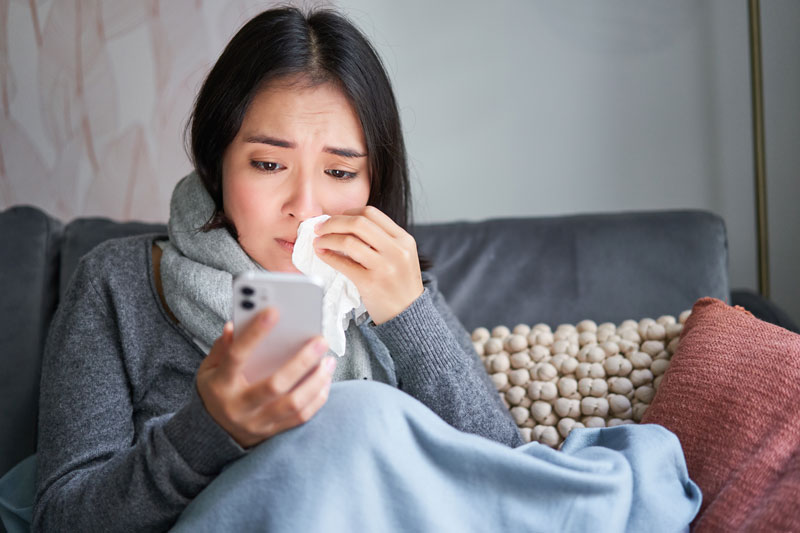Written by Richard D. Thrasher III, MD
So you have allergies in the dead of winter? You’re not alone; millions of allergy sufferers experience symptoms even in the “off months.”In a mild winter, there are more allergens to which you can be exposed.
If you live in Texas, you’re unfortunate enough to live in one of the only places in the country which has a tree that pollinates in the winter–Mountain Cedar.
Add that to the number of other plants that are able to grow in the mild temperatures and it’s turning into a rough winter for many. Without going into extensive detail, here is a nice list of treatment options.
- Nasal saline irrigation (Neti Pot or squeeze bottle) washes pollens, molds, dust, bacteria, and viruses from the nose removing irritants but also has a short acting decongestant effect. Use as needed, very little risk of side effects
- Over-the-counter (OTC) oral decongestants (e.g. Sudafed) provide relief of pressure but do not treat allergies specifically. Risk of elevated blood pressure with use. Not generally recommended for routine allergy treatment.
- OTC topical nasal decongestants (e.g. Afrin) is the most powerful class of decongestants known. Exceptional relief of congestion, obstruction, drainage, etc but HIGH RISK of physical addiction–need more and more to obtain any relief. I recommend never using more than 3 days in a week to avoid that addiction.
- OTC antihistamines (e.g. Claritin, Allegra, Zyrtec, Xyzal) are effective for mild to moderate allergy symptoms. Claritin is generally the weakest in strength of the OTC’s but has the least amount of sedation. Everyone responds differently to these medications so buy a small package to find out which works best for you.
- Prescription topical nasal antihistamines (e.g. Patanase, Astepro) are so much stronger than the oral OTC counterparts that the addition of an oral antihistamine doesn’t improve relief over just taking the spray alone. Generally work quickly (30 mins) and have minimal side effects. Can be used as needed instead of everyday.
- Prescription topical intranasal steroid sprays (e.g. Nasonex, Omnaris, Flonase, Rhinocort Aqua, Nasacort AQ, Veramyst) are exceptional at long term control of nasal allergy symptoms. Can be used in combination with the topical nasal antihistamines for even better control. Slow acting, can cause over drying leading to nose bleeds, need to be used everyday to be effective.
- Prescription anti-leukotrienes (Singulair) block the other pathway to create allergies, leukotrienes. Most people are familiar with histamine, but there are some patients where the leukotrienes play a major role in symptoms and until they block this pathway, none of the other medications help. Singulair can be synergistic with antihistamines and intranasal steroids making the sum of the parts greater than you’d expect, e.g. 1+1=3.
If you want to use maximal medical management for allergies, short of immunotherapy, I’d suggest the following: nasal saline irrigation 1-2x/day, an intranasal steroid daily, an intranasal topical antihistamine 1-2x/day as needed, and an antileukotriene. Most people who need to use 4 different treatment modalities to control their symptoms may want to consider allergy testing.
In my opinion, there are really 2 main reasons to consider allergy testing:
- to establish whether or not immunotherapy would be beneficial if allergy medications have not been helpful
- to determine if you’re allergic to something that can be avoided (e.g. cats)
If your allergy testing is positive, then there are two additional treatment options available
- Standard Subcutaneous Immunotherapy (Allergy Shots). Injections of what you’re allergic to are given starting at very small doses and increasing over time to significant doses in order to retrain your immune system not to react to that substance. The drawback is the rare, but real risk of severe allergic reactions (anaphylaxis).
- Sublingual Immunotherapy (SLIT). Like injections, except the exposure is by placing the allergen under the tongue where it is dissolved and absorbed into the blood rather than being injected into the skin. Usually not covered by insurance, but less potential side effects than with the injections and for appropriately selected patients, can be just as effective.




